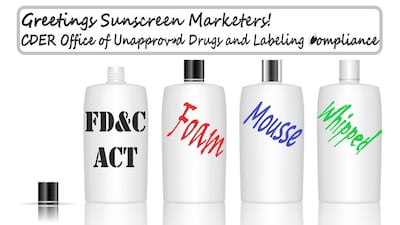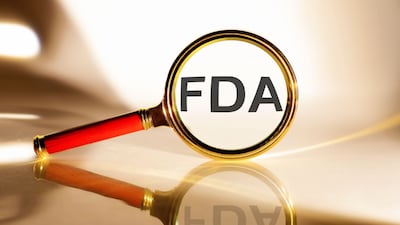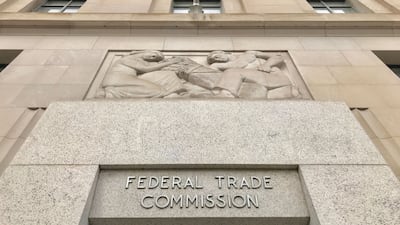Compliance
The US FDA published a Q&A draft guidance for cosmetic manufacturers on its expanded record-gathering authority under MoCRA, the types of documents that do not apply and the repercussions for stakeholders that do not comply with requests for data.
Washington state’s Toxic Free Cosmetics Act requires that retailers, salons and distributors in the state remove all remaining banned beauty products from store shelves by Jan. 1, 2026.
U.S. cosmetic and personal care companies certified to NSF Guideline 527 can largely align with EU Cosmetic Products Regulation requirements, though they must address differences in GMPs and labeling.
Consumer products companies have largely failed to respond to a survey that will help the California Air Resources Board develop future VOC regulations.
Cosmetic and personal care manufacturers should check their product formulas and work with fragrance suppliers to ensure formulas are in line with a fast-approaching deadline for compliance with the 51st Amendment to IFRA Standards.
Cosmetic manufacturers should prepare for the April 2026 deadline for reporting the presence of 24 fragrance allergens, says Jacklyn Bellomo, senior director of cosmetics science and regulatory affairs for Registrar Corp.
Circular Action Alliance, the Producer Responsibility Organization managing California’s EPR law, is urging single-use packaging producers subject to the law to register ahead of a November 15 deadline for reporting materials.
FDA admonishes five marketers for straying from approved sunscreen dosage forms in recent warning letters. Violative delivery formats render products unapproved drugs and misbranded.
US Customs and Border Protection’s program allowing companies to recoup fees for imported goods that were destroyed or exported is applicable in the case of most of President Trump’s reciprocal tariffs. However, most cosmetic companies don’t make use of it.
Beauty and personal care companies are struggling with compliance with state Extended Producer Responsibility laws, given the outstanding number of stakeholders that have still not registered products with Oregon’s EPR law, the first to go into effect.
Single-use packaging producers obligated under Oregon’s Extended Producer Responsibility law who still haven’t registered with program facilitators will struggle at this point to meet the fast-approaching material-reporting deadline, but should nonetheless jump into the process, says EPR consultant Michael Washburn.
Many small US and independent beauty brands are still unfamiliar with the Modernization of Cosmetics Regulation Act, as are owners of beauty brands based outside the US; the lack of education about the regulation is making many stakeholders at risk for non-compliance.
FDA publishes an updated registration guidance in the Federal Register 12 December to answer outstanding questions by stakeholders, including whether a single FEI number can be used for multiple related facilities.
The Washington State Department of Ecology will take interim policy action by 1 January, 2025 that will provide manufacturers alternative paths to compliance with the 1ppm lead limit under the state’s Toxic Free Cosmetics Act, the agency announces. It also anticipates opening a rulemaking related to lead impurities in cosmetics in 2025.
Personal care packaging producers should be prepared for Washington state’s 1 January deadline for ensuring personal care product containers are made up of at least 15% post-consumer recycled material, notes Angela Diesch, attorney at Amin Wasserman Gurnani, LLP, during a webinar hosted by Global Victoria, the trade facilitation agency for the state of Victoria in Australia.
The US FDA has generally not sent out enforcement letters to stakeholders of the Modernization of Cosmetics Regulation Act, but that doesn’t mean it’s not happening, says Amin Wasserman Gurnani, LLP attorney Angela Diesch, during a 19 November webinar hosted by Global Victoria, the trade facilitation agency for the state of Victoria in Australia.
California authorities say predominance of retailers licensed to sell hemp are compliant with ban published effective on 3 October through emergency regulation. But hemp industry’s contesting the regulation in state court, arguing state authorities inappropriately used emergency action to change state law on hemp products legislature passed in 2021.
The Federal Trade Commission’s Consumer Protection head Sam Levine says bipartisan leaders at the state and federal levels are taking on consumer protection issues like never before and using the FTC’s approach as a model for legislation.
Reorganization creating in Human Foods Program makes the work of additional staff available for dietary supplement office programs. FDA’s “got a little tiny workforce” for “a huge industry,” says Commissioner Robert Califf.
HiSmile, which is appealing a National Advertising Division case decision arguing that online advertising’s global footprint demands evaluation of ad claims by international standards, has been referred to the FTC for declining to participate or comply in recent NAD cases brought forward by Oral Essentials and Procter & Gamble.




















